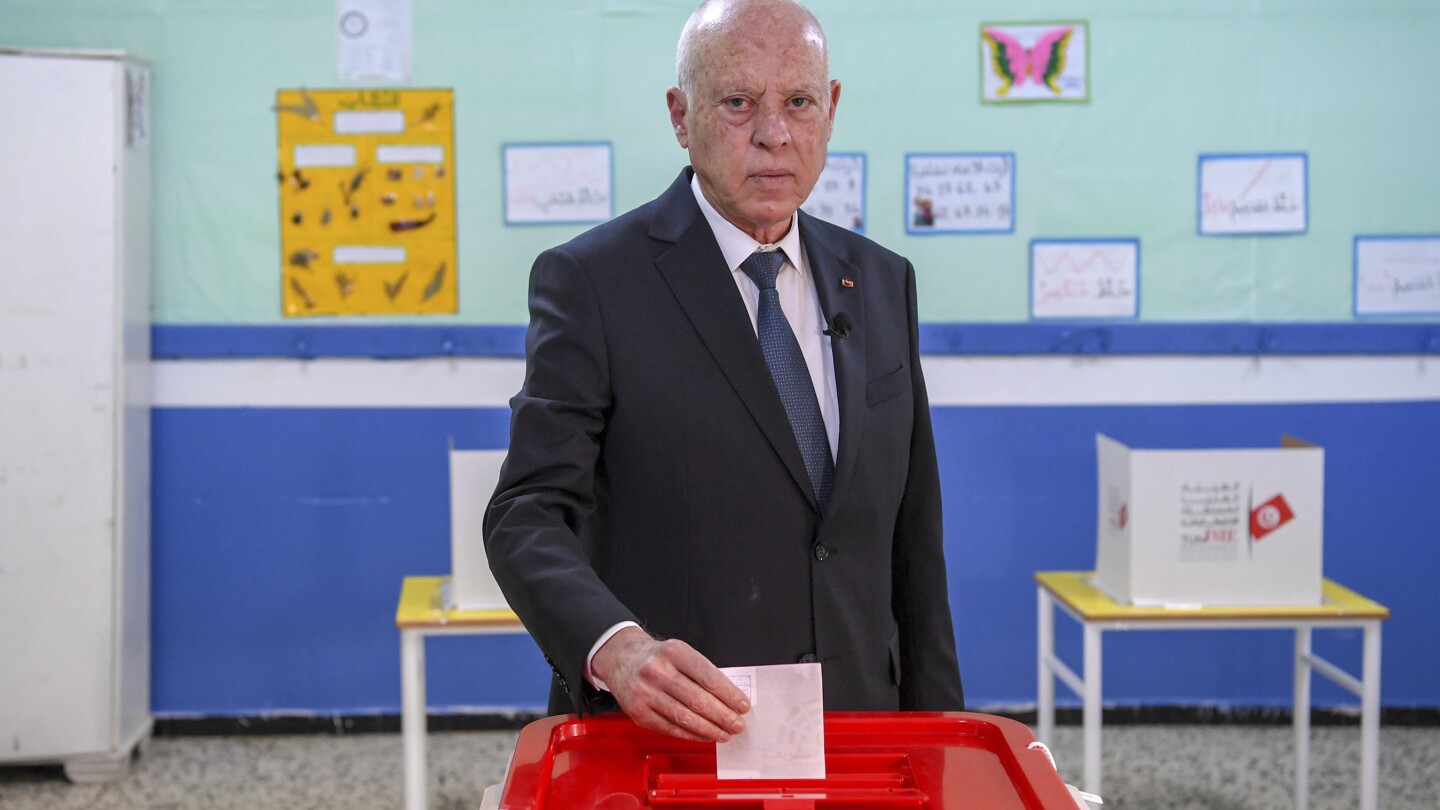TUNIS, Tunisia (AP) — Tunisia’s president has sacked the country’s prime minister and replaced him with another Cabinet member, the latest shakeup in the North African country ahead of the October presidential election.
President Kais Saied announced late Wednesday in a brief press release that he was dismissing Prime Minister Ahmed Hachani after only one year in office. Saied also named Kamel Maddouri, previously Tunisia’s social affairs minister, to the post.
The president gave no reason for his move. Maddouri will be the sixth prime minister to serve as head of government under Saied.
A few hours before his dismissal, Hachani, a former executive of Tunisia’s Central Bank, posted a video on Facebook praising the achievements of his government, particularly in the economic and social fields.
Tunisia has been shaken by growing social discontent and economic tensions, stemming from a galloping inflation, high unemployment and persistent structural challenges. Saied will seek a second term in the Oct. 6 vote.
Relations between the government and the opposition remain tense as leading figures languish in prison, including potential presidential candidates, some of whom were barred from running in elections.
Once hailed as the most progressive democracy to sprout from the region’s 2011 Arab Spring uprisings, Tunisia has since seen turbulence and succession of governments.
Over 50 countries go to the polls in 2024
- The year will test even the most robust democracies. Read more on what’s to come here.
- Take a look at the 25 places where a change in leadership could resonate around the world.
- Keep track of the latest AP elections coverage from around the world here.
Saied, a 66-year-old former law professor, came to power in 2019, capitalizing on widespread discontent and promising to make Tunisia more prosperous.
He has since suspended the parliament, rewritten the constitution to consolidate his own power and cracked down on politicians, activists and journalists known for their criticism of his rule.
Under Saied’s new constitution, he can unilaterally appoint the prime minister and the entire Cabinet — a significant change from the 2014 constitution that gave parliament a major role in forming the government.

